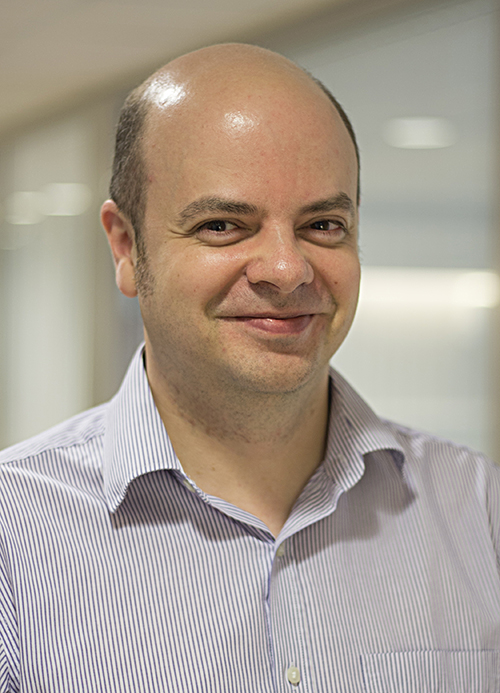Former CAS fellow joins YoungCAS workshop
Andrew Teale, assistant professor of theoretical chemistry at the University of Nottingham, just finished up a four-month stay this spring at the Centre for Advanced Study (CAS) as part of the CAS project Molecules in Extreme Environments. So why is he already back in Oslo?

Teale is the first scholar in the Centre’s history to participate in both a standard CAS project and YoungCAS, the one-of-a-kind intensive, international research experience launched in 2017.
‘I’d say they’re very different but very complementary,’ Teale said about the two programmes. In a CAS project, he said, you might have scholars working on several smaller topics that all relate to a larger theme. YoungCAS, in comparison, is much more focused on a single issue, he said.
‘I think it’s a fantastic idea to give these postdoctoral researchers, this young talent, a chance to get a network going,’ Teale said. ‘There are lots of people who are doing great research but might not be known outside Norway or Scandinavia except to their close friends.’
After spending much of the fall and spring researching at CAS, Teale is one of 10 scholars meeting in Oslo this month for a week-long workshop titled Do Electron Current Densities Determine All There Is to Know?
The YoungCAS workshop explores the Hohenberg-Kohn theorems, which underpin an approach to quantum mechanical modelling known as the density-functional theory. The theory is commonly used to calculate the electronic structure of atoms and molecules.
There’s just one problem: ‘If you go back to the proof, and if you care about the mathematics, it doesn’t actually hold up,’ Teale said about the theorems. He and the other scholars participating in the YoungCAS workshop are therefore working to see if they can understand the theorems better -- or if the theorems are even needed to set up the theory, he said.
‘The original theorem, I think, is not sound, but there are alternatives which are,’ Teale said.
The common denominator for Teale and the two projects is the Hylleraas Centre for Quantum Molecular Sciences shared by the University of Oslo (UiO) and the University of Tromsø - The Arctic University of Norway (UiT). Teale is an adjunct professor at the centre; Andre Laestadius, the YoungCAS project leader, is a postdoctoral fellow there; and Trygve Ulf Helgaker, the CAS project leader and professor of theoretical chemistry at UiO, serves as its director.
Teale’s career as a scientist has often found him travelling to Norway. After receiving his Ph.D. from the University of Durham, Teale worked for several years at the Centre for Theoretical and Computational Chemistry (CTCC), a Norwegian Centre for Excellence also shared by UiO and UiT that is generally seen as the precursor to the Hylleraas Centre. The CTCC’s grant funding ended in 2017.
Teale earlier this year was awarded a Consolidator Grant by the European Research Council, cementing him as one of the top researchers in Europe.
Teale isn’t the only member of the Hylleraas Centre whom Laestadius invited to the YoungCAS workshop. Researchers Alex Borgoo, Simen Kvaal, and Erik Tellgren, and postdoctoral fellow Sangita Sen are also participating.